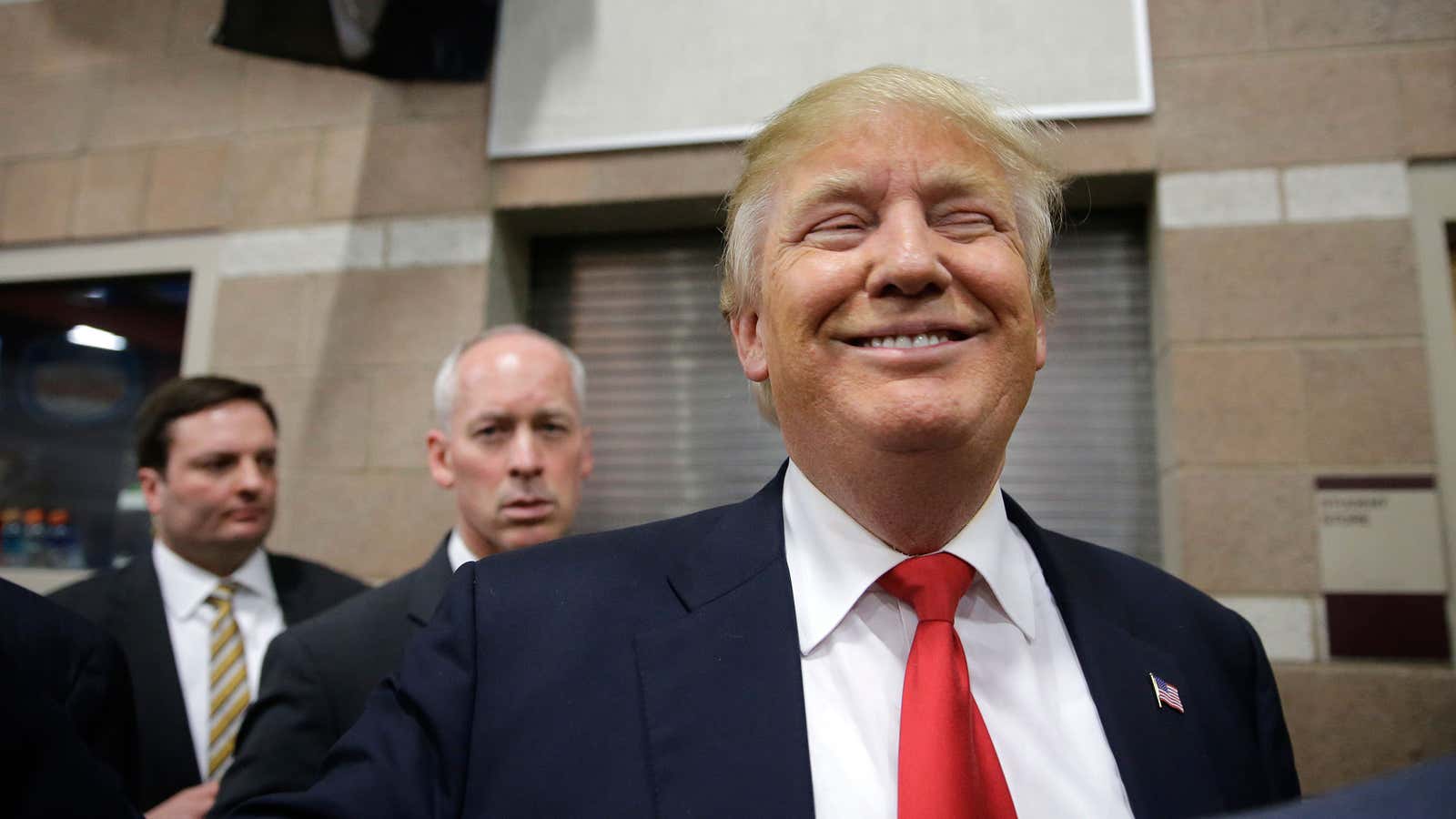Solidifying his status as the GOP presidential frontrunner, Donald Trump easily won the Nevada caucus Tuesday (Feb. 23) night, seizing three straight victories in early-voting states. But there was a much fiercer battle between Marco Rubio and Ted Cruz for second place—the candidate who will ultimately position himself as the alternative to Trump.
With 100% of votes counted, Trump had an even better-than-expected 45.9% of the votes, while Rubio had 23.9% and Cruz had 21.4%. Trump picked up 15 delegates, and Rubio and Cruz each picked up 5.
A host of problems surfaced throughout the evening as Nevada braced for projected record turnout. According to news and on-the-ground reports, the improprieties included caucus sites running out of ballots, people voting multiple times, and site supervisors failing to check IDs.
Many volunteers manning the polling booths were also wearing Trump apparel, but that is not illegal in Nevada.
Nevada is no stranger to disorganized caucuses. The Democratic caucus on Saturday (Feb. 20) was plagued with long lines and allegations some votes were improperly tallied. In 2012, it took the GOP three days to tally the results of the state’s caucus.
Nevada’s tiny caucus has only a small formal role in picking the Republican nominee, with only 30 total delegate seats. The winning nominee needs to amass 1,237 delegates.
But it will serve this year as a pivot point for debates among the three also-rans with a path to the nomination. Rubio will use the results in an effort to force Kasich out of the race as soon as possible to gain the support of Republican centrists. Cruz will be praying for Carson to finally drop out of the race, giving him a chance to secure the evangelical voters who play a major role in the nominating process.
Now the race moves on to “Super Tuesday” on March 1, when 12 states, led by Texas, Alabama and Tennessee, will weigh in on the Republican nominee.
Cruz, Rubio, and Kasich face dwindling time to push Trump out of the race by conventional means. Many Republican state committees award their delegates on a near winner-take-all system, which could turn Trump’s repeated plurality wins into a true majority if voters don’t coalesce around a single alternative who can beat the New York billionaire.
Absent a winnowing by the time 14 winner-take-all states are finish voting on March 15, Trump could be poised to take the nomination by default or force a messy convention floor battle to unseat him.
But they will need to move quickly, because Donald Trump hasn’t stopped winning yet. In his victory speech he said he “loved” Second Amendment supporters and forecast a national victory as well. “We get greedy right,” Trump said. “Now we’re going to get greedy for the United States–we’re going to grab and grab and grab.”




